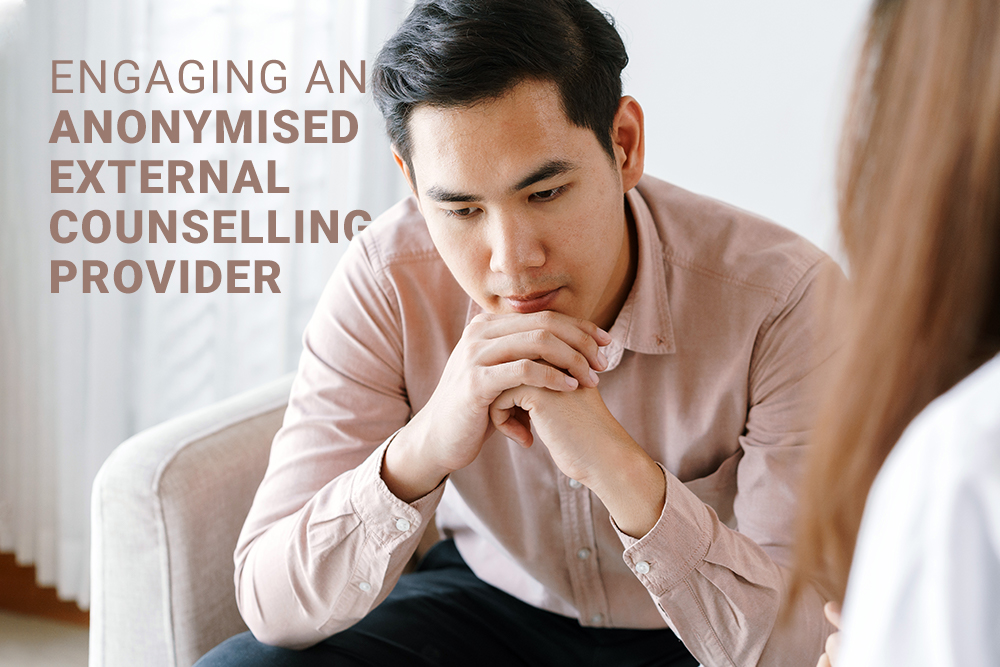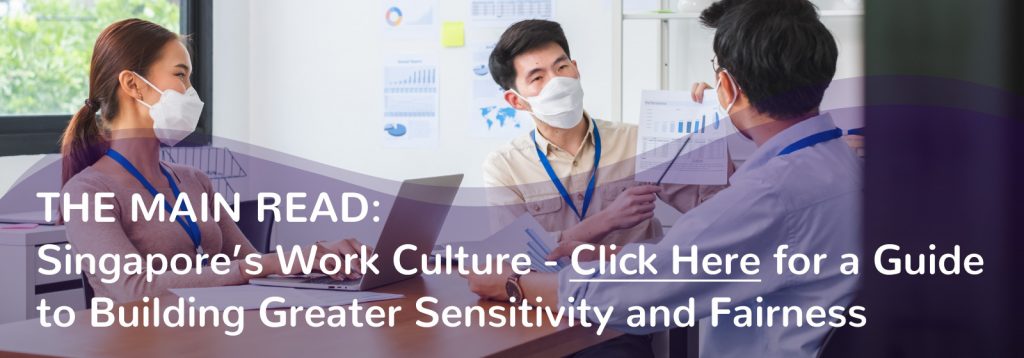Mental health used to be seen as an employee’s personal problem.
However, it is gaining prominence due to growing awareness of how it impacts work performance. Since then, companies have introduced programmes which run the gamut from mental health consultations to mindfulness classes, health talks and more to boost their employees’ mental wellbeing.
Unfortunately, these employee wellbeing programmes may not be used by those who need it.
One such example is 26-year-old bank employee Ms Mavis (not her real name) who has depression and anxiety.
While Ms Mavis knows that she needs help, going to her company’s counsellor is out of the question.
During an interview with Today, Ms Mavis explained that revealing her condition to her employers may jeopardise her chances of promotion.
“Some have told me that (the company counsellors) will report back to the bank, though my boss said that this doesn’t happen — but you never know,” she said. Thus, she sees an external counsellor for her condition.
Fear of seeking help
Ms Mavis’ situation reflects the common concerns that hinder employees from participating in their company’s mental wellbeing programmes.
Despite employers’ best intentions, their staff may be reluctant to take up the programmes because they mistakenly believe that their information may be shared with their superiors and because of the stigma surrounding mental conditions.
Research suggests that this is a widespread problem in Singapore. The 2018 Institute for Mental Health report found that 86.5% of Singapore employees did not seek help for their mental health conditions because of the stigma attached to it.
Ms Anuradha Purbey, the people director at insurance company Aviva Europe and Asia, acknowledges this problem.
“While mental health awareness has been gaining traction in Singapore, for many it is still considered taboo to acknowledge their struggles,” she said.
More support from employers needed
The Singapore Mental Health Study conducted from 2016 to 2018 found that one in seven people in Singapore has experienced a mental disorder in their lifetime. This is an increase from one in eight people in the 2010 study.
Given the prevalence of mental health issues in our society and the emotional toll that the pandemic has inflicted, there is a greater urgency for employers to support their staff’s mental wellbeing since it is likely that many working individuals may be struggling mentally in silence. Doing so will also convey the message to staff and potential employees that the company cares for and appreciates the contributions of its staff.
Dr Daniel Tan, the chief executive officer (CEO) of healthcare firm Parkway Laboratories, noted that companies that support their staff’s mental wellness will benefit through their ability to retain good employees.
“The old way is to push people to see how far they can go. That’s the old paradigm of work assessment,” he said.
“Now, instead of pushing people, let’s see how to get them to perform as best as they can in their own circumstances. Create the environment for them to thrive rather than to slog it out and to reach a breaking point and burn out and quit.”
For a start, employers need to walk the talk by showing that they do not stigmatise employees with mental health issues. Senior management can help to normalise mental health issues by sharing their struggles like DBS’ CEO Mr Piyush Gupta and Economic Development Board managing director Mr Chng Kai Fong. This will give staff the assurance that it is alright to voice their mental health issues and seek treatment early.
Besides that, employers can also introduce the following non-traditional options that guarantee employees their privacy and provide a safe and non-judgmental environment for them to confide in mental health professionals.
These options can also augment a company’s existing mental well-being programmes to make the workplace a more welcoming environment for individuals struggling with mental health issues since it can be done in the employees’ own time and privacy, at no cost to them. The human resources team and supervisors can share these resources with their teams to encourage them to make use of them to care for their mental health.

1. Mindline
Developed by the Ministry of Health Office for Healthcare Transformation (MOHT) with the Institute of Mental Health and other public agencies, Mindline.sg is a free online platform that provides tools and resources to help individuals manage their well-being.
The platform includes Wysa, an AI chatbot, that helps individuals identify their issues and provides suggestions such as deep breathing exercises to help them de-stress or alleviate their anxiety.
One of the best things about the platform is that it is available 24/7 and gives individuals a safe space to talk about their problems without worrying about confidentiality issues – you do not need to provide your name and personal information to use the service.

2. Mental wellness apps
Most of us are constantly plugged into our electronic devices. So, it is no surprise that more and more start-ups are providing digital solutions targeting mental wellness issues like burnout and more.
One such tool is Safe Space, a B2B2C digital mental health provider that has an app and an enterprise platform that can be offered as a staff benefit. Like its name, Safe Space aims to give its clients a conducive setting to speak to counsellors online or offline. The platform has three tiers – free, basic and premium.
The free tier gives employees of partner organisations self-help resources, while the basic tier allows companies to top up digital wallets so that their employees can attend counselling sessions when necessary. The premium tier has specially curated programmes for the company’s employees.
Another company providing a similar service is the local start-up Intellect. Like Safe Space, the company provides an app that offers a range of self-guided programmes and an enterprise platform. To date, the platform has around 10,000 employees using its enterprise product. The company also counts technology start-ups, hospitals and multinational corporations as some of its clients. Delivery platform Foodpanda is also exploring a pilot with Intellect, to provide services to some of its staff.
Explaining the decision for working with Intellect, Foodpanda’s head of human resources, Ms Judit Hordai noted that virtual platforms are attractive because of their accessibility and privacy. Additionally, users can reach out to someone from their “safe space”.

3. External programmes
Since employees may be sceptical about approaching their companies’ counsellors, engaging an anonymised external counselling provider can assure them of a private and non-judgemental environment to share their problems. The Ministry of Manpower’s Tripartite Advisory on Mental Well-being at Workplaces includes an annexe of employee assistance programme (EAP) service providers such as the Singapore Counselling Centre and The Centre for Psychology, which human resource departments can approach when they plan such initiatives.
Ultimately, all employers want healthy and productive employees since they perform better at work. Thus, it will serve companies well if they invest in tools and resources that provide privacy and convenience so that employees get the help that they need to manage their conditions early.















